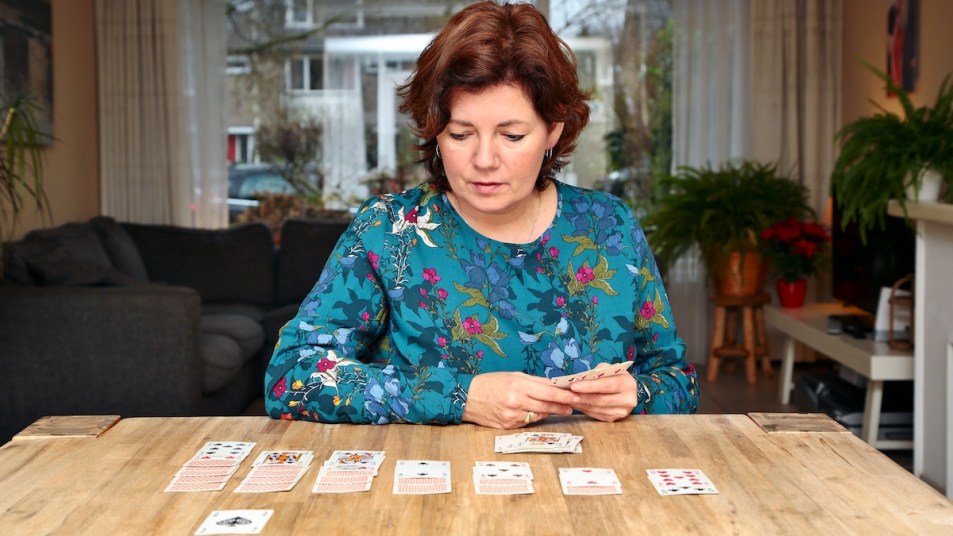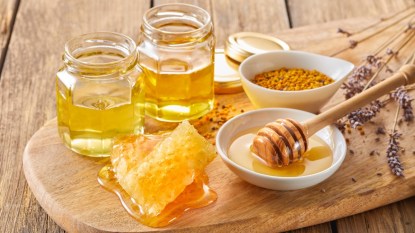Science Says: Playing Cards and Eating Apples May Have Big Brain Health Benefits
Fight off brain fog and have fun at the same time.

As you age, you may experience increased brain fog and lapses in memory. These moments of confusion can be scary, but they don’t necessarily have to keep you from enjoying life. Brain fog can be a symptom of a larger medical issue, but oftentimes, it’s just a sign that you need to “sweep out the cobwebs” and practice some exercises for brain health. So, where should you start?
Below, check out these three science-backed strategies to help improve your executive functioning, memory, and focus. These tips aren’t just healthy and helpful, they’re also (dare we say) fun. Boosting your brain health and having a good time while doing it? Sounds like a win-win to us.
Settle in for solitaire.
Enjoy your extra time cozied up indoors this winter by playing your favorite card game (like solitaire or Spite and Malice), board game (like Risk or Monopoly), or jigsaw puzzle. A study in Neurology reveals that living a “cognitively active lifestyle” — a lifestyle in which you keep your mind engaged with activities that encourage active thinking — may help delay the onset of dementia. A separate review in Neurology also found that fun “mental activities” are linked to a lower risk of Alzheimer’s and other forms of cognitive decline.
Kick back with spiced tea.
It feels so good to sip a warm mug of tea on a cold day. But tea doesn’t just taste great; it also offers health benefits. Research published in the Journal of Nutrition, Health, and Aging found that, in a study of 957 elderly, cognitively intact people, “Regular tea consumption was associated with lower risk of neurocognitive disorders.”
Wondering which tea you should be drinking? Black tea in particular contains caffeine and the amino acid L-theanine, both of which improve alertness and focus. To give your black tea an additional boost, add a dash of cinnamon to the comforting brew. A study published in the Journal of Neuroimmune Pharmacology noted that cinnamon-eating mice were more likely to be “good learners.”
To enjoy the benefits of black tea and cinnamon, steep a black tea bag for five minutes. Discard tea bag, then stir in ¼ teaspoon of the spice.
Dig into a crispy apple.
Could an apple a day make memories stay? A study in Stem Cell Reports found that phytonutrients in apples stimulated neurons responsible for locking in new memories in mice. A study on 921 humans published in Neurology also noted that the flavanols (plant compounds) in the fruit are associated with a lower risk of Alzheimer’s and dementia. Bonus tip: When eating an apple, make sure you eat the peel. The peel contains quercetin, an antioxidant that may protect brain health.
This content is not a substitute for professional medical advice or diagnosis. Always consult your physician before pursuing any treatment plan.
A version of this article originally appeared in our print magazine, Woman’s World.













